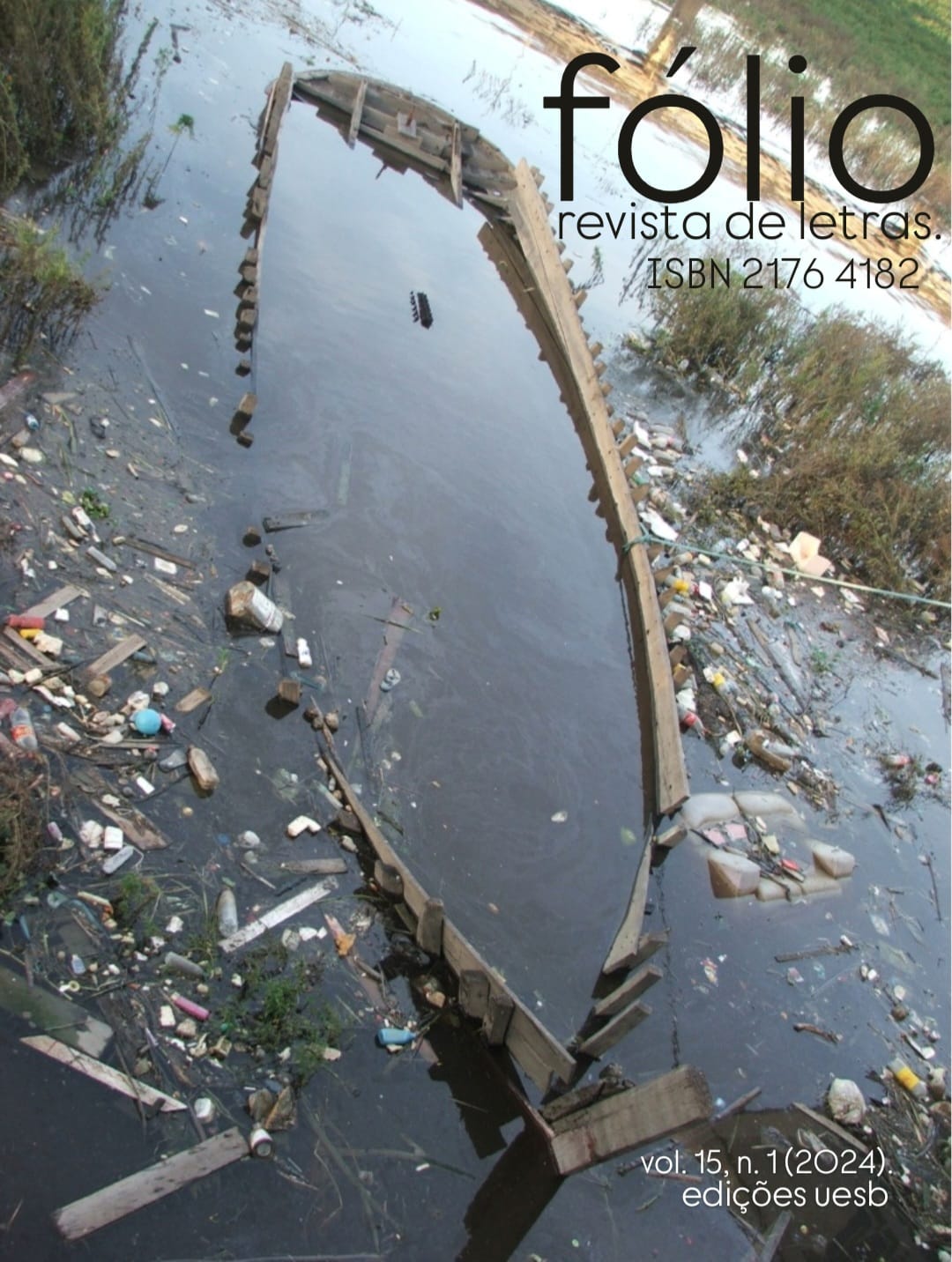A ancestralidade na poética de Ivanildes Moura
DOI:
https://doi.org/10.22481/folio.v15i1.12692Keywords:
Ancestry, Children's literature, Women's literature, RepresentationAbstract
Historically, Brazilian literature has focused mostly on the works considered classical, which make up the so-called literary canon. Society delimits classic works based on a structural condition, which is, above all, sexist and racist, which almost always leaves other works that do not fit into the established molds of authority out of consideration. By tracing the opposite path, this article intends to bring to light the black, feminine and engaged writing through the narrative Azire, a princesinha de Aruanda (2014), by the Jequieense writer Ivanildes Moura, in order to build a new perspective about the black representation in children's books, based on the recurring themes of the author's book in question. Through children's literature, Moura incorporates in her work elements of African ancestry, female empowerment and black self-esteem, thus building a counter-narrative about the reality of these subalternized subjects. Reflecting on ancestral memory and the construction of a people's identity is a necessary process for the perception of the existence of other paths and possibilities for retelling history. What Azire, a princesinha de Aruanda and Ivanildes Moura do with the reader is to propose reflection and the construction of an image whose horizon points to the emancipation and empowerment of black people, especially children.
Downloads
References
ARAÚJO, Débora Oyayomi. Literatura infantil e ancestralidade africana: o que nos contam as crianças?. Momento: diálogos em educação, E-ISSN 2316- 3100, v. 28, n. 1, p. 109-126, jan./abr., 2019.
BEAUVOIR, Simone de. O segundo sexo: fatos e mitos. 4 ed. São Paulo: Difusão Europeia do Livro, 1970.
CUTI. Literatura negro-brasileira. São Paulo: Selo Negro Edições, 2010.
DALCASTAGNÈ, Regina. Literatura Brasileira Contemporânea – Um Território Contestado. São Paulo: Editora Horizonte, 2014.
DEBUS, E.S.D. A literatura infantil contemporânea e a temática étnico-racial: mapeando a produção. Anais do 16º Congresso de Leitura do Brasil - Seminário de Literatura Infantil e Juvenil, 2007.
EVARISTO, Conceição. Fêmea fênix. In: Maria Mulher – Informativo, ano 2, n. 13, 25 jul. 2005.
_____. Becos da Memória. Belo Horizonte: Mazza Edições, 2006.
HOOKS, Bell. Ensinando a transgredir: a educação como prática da liberdade. São Paulo: WMF Martins Fontes, 2013.
LEIRO, Lúcia. Literatura infantojuvenil e ancestralidade. São Cristóvão: GELIC, Volume 05, 2014.
MOURA, Ivanildes. Azire, a princesinha de Aruanda. Salvador: Cultura Editorial, 2014.
PRANDI, Reginaldo. Mitologia dos Orixás. São Paulo: Companhia das Letras, 2001.
PERROT, Michelli. Minha história das mulheres.-1.ed.,1ª reimpressão. São Paulo: Contexto, (2008).
QUEIROZ, Fernanda Roberta Rodrigues; BUZAN, Thales Nascimento. Os caminhos da literatura infantil escrita por mulheres. Juiz de Fora: Ipotesi, 2019.
RIBEIRO, Ronilda Iyakemi. Alma Africana No Brasil – os iorubás. São Paulo: Editora Oduduwa, 1996.
SCHMIDT, Aline Van Der. Entre, coelhos, tranças e guerras: dilemas contemporâneos na literatura infantil de Angola de Ondjaki. Dissertação
(Mestrado em Letras) - Universidade Federal da Bahia, Salvador, 2014.
ZILBERMAM, Regina. A Literatura Infantil na Escola. São Paulo: Global, 1981.
Downloads
Published
Issue
Section
License
Copyright (c) 2024 fólio - Revista de Letras

This work is licensed under a Creative Commons Attribution-NonCommercial 4.0 International License.












